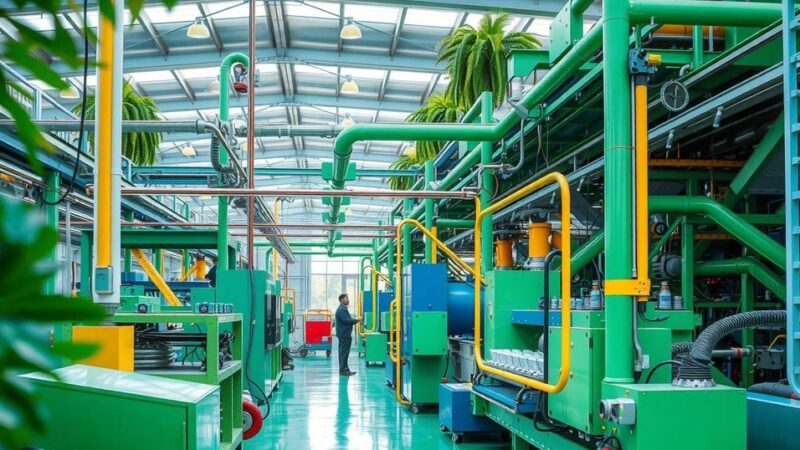Tesla’s stock declines amid BYD’s breakthrough in five-minute EV charging. Audi and Alfa Romeo reconsider their all-electric commitments, while Nissan partners with SK On for U.S. battery production. BYD’s advancements present challenges for traditional automotive leaders as they navigate the transition to electric vehicles.
Tesla has recently experienced a decline as China’s BYD emerges with a significant advancement in electric vehicle (EV) technology—five-minute charging capabilities. This development poses a challenge to Tesla, especially as investors look for positive indicators amidst Tesla’s declining stock value. This article presents various updates in the automotive industry, including Audi and Alfa Romeo’s hesitance regarding a fully electric future, alongside Nissan’s partnership for EV battery production in the U.S.
BYD has introduced a 1,000 kW DC fast charger for its Super e-Platform EVs, which allows vehicles to gain approximately 250 miles of range in just five minutes. This remarkable innovation addresses long-standing range concerns, making EVs more appealing, particularly in markets beyond China. Consequently, BYD’s progress has contributed to a further drop in Tesla’s stock as consumers criticize Tesla’s relatively aging model lineup amid BYD’s competitive pricing and technological advancements.
As BYD capitalizes on its innovative charging technology, Audi and Alfa Romeo reassess their commitment to an all-electric lineup. Audi has indicated that the transition may take longer than originally planned, expressing cautious optimism due to current delays. Also, Alfa Romeo has shifted its focus, retaining combustion engines in addition to developing electric models, even after previously committing to an electric-only strategy by 2027.
In another significant development, Nissan has secured a partnership with South Korean battery manufacturer SK On to produce batteries for upcoming EVs in the U.S. From 2028 to 2033, SK On will supply nearly 100 GWh of high-performance batteries, supporting the production of next-generation EVs at Nissan’s Canton plant. This collaboration highlights the importance of strategic partnerships in advancing electrification while potentially creating numerous jobs in the U.S.
As the automotive landscape evolves, the question remains: would ultra-fast charging significantly influence consumer behavior in the EV market? If competitively priced EVs with rapid charging capabilities were available,消费者偏好可能会发生改变,尤其是考虑到制造商来自中国的情况。如果这些车型能以合理的价格提供相应的性能,市场接受度可能会得到提升。
In conclusion, as Tesla struggles, BYD is carving out a substantial advantage with groundbreaking fast-charging technology that significantly enhances the viability of electric vehicles. Meanwhile, major automotive players like Audi and Alfa Romeo face uncertainty in their transition to electric lineups, and Nissan strengthens its future in EVs through strategic battery partnerships. This evolving scenario indicates a pivotal transformation in the global automotive industry driven by innovative technologies and adaptive strategies.
Original Source: insideevs.com






